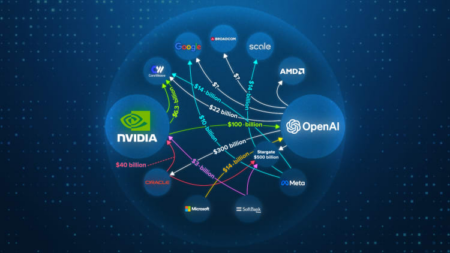Google AI Overviews feature, which generates AI-powered summaries at the top of search results, is facing growing criticism from publishers and regulators.
Despite Google’s repeated denials, multiple studies suggest that the tool is significantly reducing website traffic and threatening the future of independent media.
Just 1% of Users Clicked a Link Inside Google AI Overview Box.
Pew Research Center study revealed that U.S. users shown Google AI Overviews clicked external website links only 8% of the time, compared to 15% for those without the summaries.
Moreover, users were more likely to end their browsing sessions after viewing AI-generated summaries — 26% versus 16% on pages without them.
Shockingly, just 1% of users clicked a link inside the AI Overview box itself.
Inaccurate or Misleading Information.
The findings mirror what publishers have long warned: by summarizing web content directly on the search page, Google is discouraging users from visiting original sources.
Reports also highlight that Google AI Overviews have occasionally displayed inaccurate or misleading information.
Publishers Sound the Alarm
Leading outlets like The Wall Street Journal, The New York Times, and The Washington Post have all seen a noticeable drop in search-driven traffic, according to data from SimilarWeb.
Smaller independent publishers report even harsher effects, with some forced to shut down or completely change their business models.

Antitrust Complaint Accusing Google AI Overviews
In response, the Independent Publishers Alliance filed an antitrust complaint with the European Commission in June, accusing Google of abusing its market dominance.
The complaint argues that Google unfairly exploits publisher content to fuel AI Overviews while depriving them of traffic, readership, and ad revenue.
The publishers also noted that opting out of AI data usage is not possible without losing visibility in Google Search altogether.
The UK’s Competition and Markets Authority confirmed receiving the complaint, raising further regulatory concerns.
Google Defends Its AI Strategy
Google, however, insists the feature benefits both users and publishers.
Robbie Stein, VP of Product for Google Search, said in May that fluctuations in website traffic can be caused by many factors, not just AI Overviews.
A company spokesperson added that Google sends “billions of clicks” to publishers daily and that AI-powered search creates “new opportunities to discover content and businesses.”
Rising Legal and Regulatory Pressure
The European complaint follows a U.S. lawsuit filed by an ed-tech company, claiming that Google AI Overviews undermine demand for original content and hurt publishers’ ability to compete.
With regulatory bodies in both the EU and U.S. examining the issue, the debate over AI in search is becoming a global flashpoint.
What is the Real Question?
Google’s bold move to integrate AI deeply into its search engine is reshaping how users consume information online. But as publishers warn of declining traffic and shrinking revenues, regulators are now being urged to step in.
Whether AI Overviews will revolutionize search or dismantle the digital publishing ecosystem remains an open — and urgent — question.








